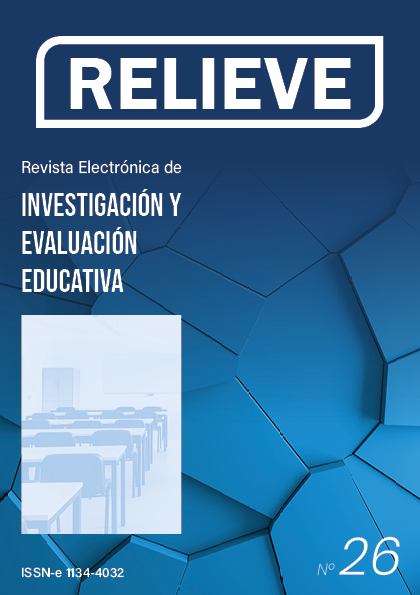El futuro de la evaluación en la educación superior
DOI:
https://doi.org/10.7203/relieve.26.1.17323الكلمات المفتاحية:
Evaluación، Evaluación como aprendizaje، Evaluación sostenible، Tareas de evaluación، Retroalimentación، Participación، Medios de evaluación، Tecnologías que mejoran la evaluación، Educación superiorالملخص
El reto pendiente de la evaluación en educación superior, aunque también en otros niveles, sigue siendo su vinculación efectiva con el aprendizaje de los estudiantes. A través de la evaluación se puede y debe conseguir un aprendizaje estratégico del estudiantado. Esta aportación surge a partir del intento de dar respuesta al interrogante sobre cuál sería el futuro de la evaluación en la educación superior, presentándose la misma bajo la forma de un texto elaborado de forma colaborativa entre todos los autores que la firman. Se ofrece así una reflexión conjunta de diversos autores de diferentes contextos y regiones sobre tres aspectos esenciales. En primer lugar, se resalta la necesidad de reflexión y un cambio en la evaluación basado en las tendencias actuales que están demostrando su oportunidad y validez. Un segundo aspecto se centra en el valor de la tecnología en los cambios que se están produciendo en la evaluación, pero siempre que se adapte a sus principios y, por lo tanto, no implique una vuelta al siglo pasado bajo el dominio de modelos hoy ampliamente superados. Interrelacionar evaluación y aprendizaje junto a la utilización de tecnologías que mejoran la evaluación implica, finalmente, rediseñar las prácticas evaluativas incorporando propuestas desde los ámbitos de la justicia social y la evaluación sostenible, el diseño de tareas de evaluación auténticas, propiciar retroalimentación de los procesos y fomentar la participación del estudiantado. En definitiva, colaborar en la formación del juicio evaluativo de los estudiantes para conseguir ciudadanos libres, socialmente responsables y justos.
التنزيلات
التنزيلات
منشور
كيفية الاقتباس
إصدار
القسم
الرخصة
Los autores ceden de forma no exclusiva los derechos de explotación de los trabajos publicados a RELIEVE (a los solos efectos de favorecer la difusión de los artículos publicados:firmar contratos de difusión, de integración en bases de datos, etc.) y consienten que se distribuyan bajo la licencia de Creative Commons Reconocimiento-Uso No Comercial 4.0 International (CC-BY-NC 4.0), que permite a terceros el uso de lo publicado siempre que se mencione la autoría de la obra y la fuente de publicación, y se haga uso sin fines comerciales.
Los autores pueden llegar a otros acuerdos contractuales adicionales e independientes, para la distribución no exclusiva de la versión del trabajo publicado en esta revista (por ejemplo, incluyéndolo en un repositorio institucional o publicándolo en un libro), siempre y cuando se cite claramente que la fuente original de publicación es esta revista.
La mera remisión del artículo a RELIEVE supone la aceptación de estas condiciones.














